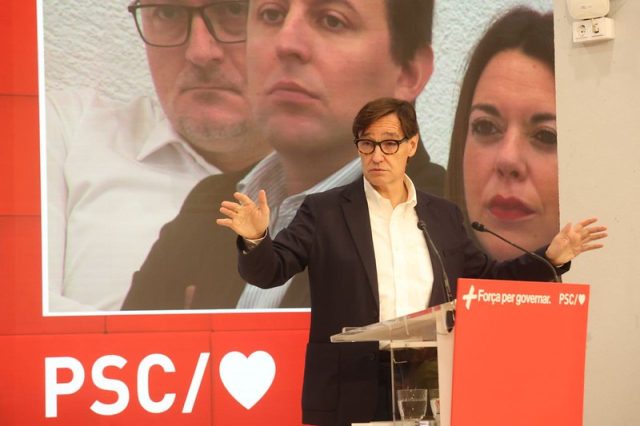
The recent announcement by Salvador Illa’s government regarding the creation of a Commissioner for Vulnerable Neighborhoods has ignited a debate over the true efficacy and purpose of this initiative. Presented as a “transformative” policy aimed at improving living conditions in disadvantaged neighborhoods and curbing the rise of the “far right”, this initiative raises important questions. One must critically evaluate whether it genuinely addresses the needs of citizens or if it is merely political propaganda dressed up as benevolence.
A key concern regarding this initiative is that it appears more focused on combating “the arguments of populism and the far right” than on addressing the structural problems affecting vulnerable neighborhoods. According to government data, parties like Vox have gained substantial ground in working-class and low-income areas. Rather than reflecting on the underlying reasons behind this increase in right-wing support, Illa seems more preoccupied with countering his political adversaries than with addressing the genuine demands of the citizens who have turned to these alternatives.
The neighborhoods where Vox has gained the most votes are characterized by high levels of unemployment, low incomes, and limited educational attainment. These issues are not coincidental; they are the result of decades of failed policies that have not provided effective solutions to the problems plaguing these areas. The failure to address the economic and social realities faced by residents has allowed discontent to fester, contributing to the rise of populist sentiments.
Moreover, the emergence of political parties in these regions should not be dismissed as mere populist manipulation. Instead, it signals a legitimate discontent that the left has failed to recognize and address adequately. Insecurity, unemployment, a lack of opportunities, and a pervasive sense of abandonment by the state are among the critical factors contributing to this shift in voter sentiment. Ignoring these issues could further alienate citizens and exacerbate the problem.
Another important aspect to consider is the structure of the Commissioner for Neighborhoods, which is led by Carles Martí, a veteran socialist politician with a long career in Barcelona’s City Hall. Despite his considerable experience, the creation of yet another bureaucratic body does not guarantee that solutions will be provided for vulnerable neighborhoods. In fact, the government itself admits that it has yet to define the specific resources or timelines for implementing its plans, leaving the true effectiveness of the initiative in question.
Furthermore, the inclusion of the “ecological transition” as one of the Commissioner’s goals raises additional questions. While sustainability is indeed important, in neighborhoods grappling with high unemployment and social exclusion, it is crucial to ask whether the priority should be adapting buildings to climate change or improving the economic conditions of the residents. While issues such as accessibility and energy efficiency are relevant, they may seem secondary compared to the urgent needs for job creation and enhanced public safety.
A critical concern lies in the evident disconnect between the government and the real problems faced by citizens. Instead of implementing policies that promote job creation or provide incentives for small businesses, the government seems to favor solutions that address symptoms rather than tackling root causes. This lack of focus on real issues can lead to further frustration among those living in vulnerable neighborhoods.
The Commissioner for Neighborhoods initiative promoted by Salvador Illa appears more like a political strategy than a viable solution. The constant emphasis on “dismantling the arguments of the far right” suggests a preoccupation with political rivals rather than a sincere commitment to addressing the pressing issues faced by citizens. Vulnerable neighborhoods need tangible, effective solutions—not ideological rhetoric or bureaucratic structures that may only deepen the disconnect between the government and the people. It is imperative that policymakers prioritize the needs of citizens over political maneuvering.



 Subscribe
Subscribe